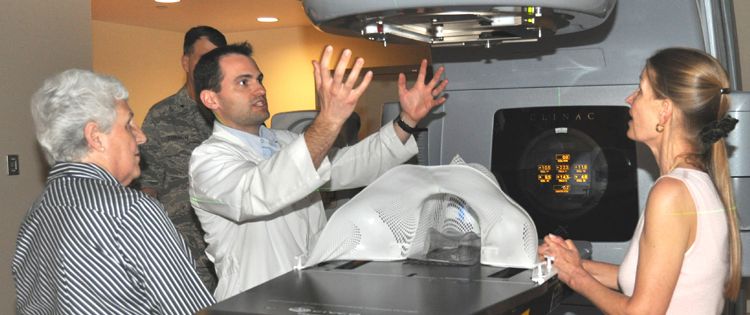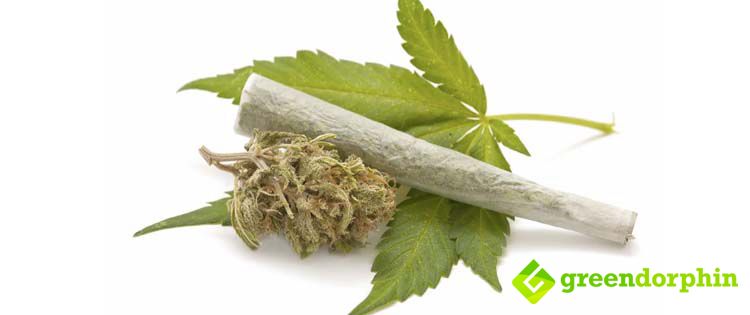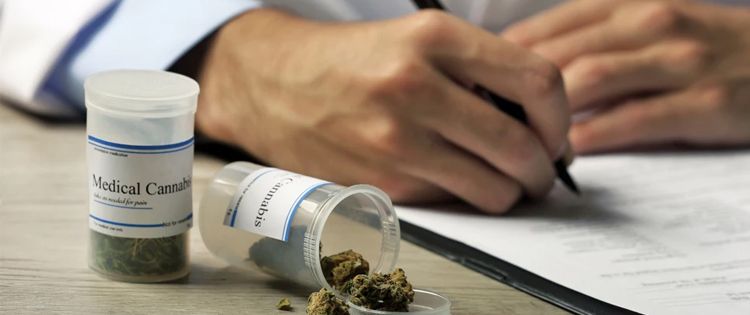More cancer patients are now allowed to use cannabis as more states plan to join the first thirty that have already passed their medical cannabis laws.
Reports are regularly presented regarding how cannabis is effective in controlling pain and nausea, some of the symptoms of chemotherapy. But it seems that patients who would like to try this alternative treatment are often accommodated by doctors who are not familiar in treating with cannabis.
A survey with 237 oncologists in the U.S. found that although 80 percent of the doctors talk about cannabis with their patients, only 30 percent feel that they have the proper training or knowledge to prescribe it to them.

Even with the little experience they have with this alternative, a study found that almost half of them do recommend medical marijuana to the individuals looking for medical treatment especially to those who haven’t had any luck with their current medication programs.
Dr. Ilana Braun, a cancer psychiatrist from Boston and the lead author of the study published in the Journal of Clinical Oncology said that evidence for marijuana’s potency in the field of oncology is still young. Some of her colleagues have to study clinical tests of other illnesses that lead to the evidence on pharmaceutical-grade cannabinoids’ efficacy.
Braun’s study also found that most of the conversation about medical cannabis was initiated by the patients. Dr. Jerry Mitchell, an oncologist from Ohio says that this is not surprising. Mitchell is not affiliated with the study but he said that he is regularly asked by his patients about it.
“This is a product that is well-known,” says Mitchell. “It’s a product cancer patients think will help them, and they’re going to ask their doctors about it, which is what they should be doing. They should be advocates for their own health.”
Dr. Mitchell is also on Ohio’s state medical cannabis advisory board. Although he supports this alternative, he can’t initiate a conversation regarding medical cannabis with his patients because legal outlets where the patients can buy the substance is not available yet in the state.

Ohio passed a law that legalized medical cannabis in the state but dispensaries can’t open until September this year.
The lack of knowledge among oncologists about medical cannabis leaves the patients suffering from cancer no choice but to figure out how to take it themselves.
One example is Larry Lenkart, 60. It was September last year when Lenkart was diagnosed with stage 4 pancreas cancer. According to him, he experiences severe pain, nausea, and cramps that lasts roughly for 10 days after the chemotherapy sessions.
Lenkart already had 11 sessions and describes it as the worst flu one will ever have. He also added that what makes it worse is it’s ongoing.
His doctor had no objections when he asked to be certified for the state’s medical marijuana pilot program. Although Lenkart received a medical cannabis card soon after his application, his oncologist had no idea how to guide him with the dosage and application.
This led Lenkart to seek information online, from his friends, and the dispensary staff. After 4 months of experimenting, he says that he is still exploring the quantity of the dose and evaluating what’s more effective: edibles, marijuana buds, oils, or vape pens.

In spite of his trial-and-error approach, Lenkart says that cannabis is effective in alleviating the pain, mental fogginess, and nausea after chemo.
Without rigorous data to be considered medical proof, anecdotes like this from Lenkart may be affecting the field of oncology.
Mitchell said that most medical professionals feel that they are not well-equipped with handling patients who are asking for medical cannabis because the community lacks quality evidence that supports the claim that cannabis can help alleviate cancer-related pain.
But the oncologist suspects that most of his colleagues are thinking of recommending medical marijuana with the rise of anecdotal evidence that supports the effectiveness of this alternative.
Indeed, the study by Braun and her colleagues found that about 2/3rds of oncologists believe that medical cannabis is useful if it is combined with the standard treatment for patients who are undergoing chemotherapy.
The study also proved that doctors from the states where medical cannabis is legal have more knowledge about how to prescribe cannabis to their patients compared to their peers in the states where it remains outlawed.
But in both cases, these doctors were just as likely to recommend medical cannabis to their patients.

Braun also reported that medical professionals from the western states are more open to discuss and prescribe medical cannabis than their counterparts in the south. She said that she was unsure of why those kinds of discrepancies exist but her team plans to look more into these findings with a follow-up study.
Clinical trials will also be conducted by Braun’s team to further study the use of medical cannabis for cancer-related symptoms.
In preparation for their research, Braun said that she is ready to face the challenges that are associated with researching Schedule 1 substances. Braun says that she strongly believes that federal limitations should be loosened so that they can conduct their studies better to finally find out the potential as well as any potential risks of cannabis consumption.
- How Commercial Cannabis Growers Can Benefit from Using a Software - May 17, 2019
- Understanding CBD Interactions and Why CBD and Your Brain Can Be Best Friends - January 4, 2019
- The Difference Between Using THC and CBD - December 19, 2018


